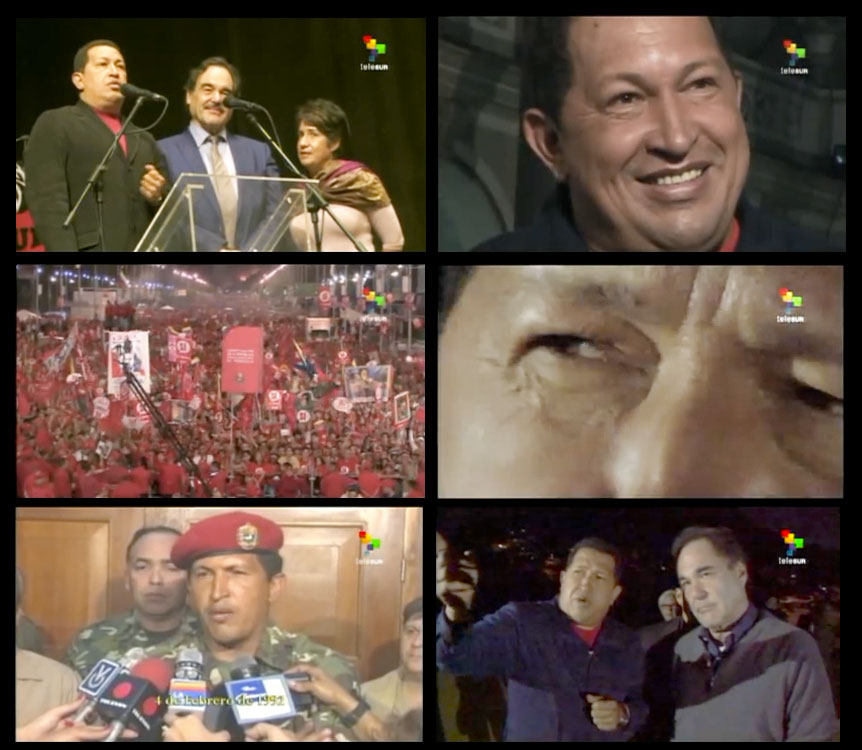Oliver Stone’s Venezuela: Between Forgetting and Horror
by Orlando Luis Pardo Lazo and translated by Alex Higson / March 17, 2014 / 1 Comment
While Venezuela is racked with protests, corruption, and death, her late Supreme Commander is given the “friend” treatment by Oliver Stone.

Scenes from Oliver Stone's new documentary 'Mi Amigo Hugo.' Photo: Created by Sampsonia Way via YouTube.
For over a month now, the people of Venezuela have been joining together to protest the country’s Chavista government, which has ruled since Hugo Chávez took power 15 years ago. The demonstrations down on the streets and at the barricades are unstoppable. They form a sea of largely young people, a generation that has known no other reality but nonetheless is thoroughly fed up with the only one it knows. As a result, they are crying out that enough is enough.

- Is it worth-while to focus on the last images and letters coming from the inside of the last living utopia on Earth? Is Cuba by now a contemporary country or just another old-fashioned delusion in the middle of Nowhere-America? A Cold-War Northtalgia maybe? Can we expect a young Rewwwolution.cu within that Ancien Régime still known as The Revolution? I would like to provoke more questions than answers.

- Orlando Luis Pardo Lazo was born in Havana City and still resides and resists there, working as a free-lance writer, photographer and blogger. He is the author of Boring Home (2009) and is the editor of the independent opinion and literary e-zine Voces.
They are condemning the shortages, the wholesale delinquency, the government corruption, the ransoming of civil society (including the closure of the free press), Cuba’s meddling attempts at imposing a monolithic model of society, the electoral fraud, and the list goes on and on. Ultimately, they are denouncing the asphyxiation of the very fragile illusion that we call Latin American democracy.
Venezuela’s Bolivarian government responded immediately—with military and paramilitary repression in front of its citizens’ cameras, which fortunately were connected to the net. What a macabre deployment of first-world technology to suppress popular opinion.
Beatings. Torture. Countless accusations. At least twenty eight people are dead, most of whom were unarmed civilians—and most were killed by an expertly executed shot to the head. Venezuela’s Attorney General, Luisa Ortega Díaz, acknowledged that more than a thousand Venezuelans had been arrested in a single month, using precautionary measures that restrict their freedom to protest in public, though she assured that only 104 were still in prison, including 15 public officials who have been accused of human rights violations.
March 5th marked the first anniversary of the announcement of the death of ex-President Hugo Chávez—who is now known as the Supreme Commander—although there are rumors that his death occurred in Cuba and not Venezuela, at an earlier date than the official version.
On that day, Oliver Stone premiered his posthumous tribute documentary, Mi Amigo Hugo, which was shown as a mandatory broadcast on every Venezuelan TV network, while the Bolivarian National Guard held the country in a headlock. Long live total freedom of expression! But the American filmmaker forgot to say a single word about the tragedy that is devouring Venezuela today. Long live the amoral amnesia of expression too?





One Comment on "Oliver Stone’s Venezuela: Between Forgetting and Horror"
Trackbacks for this post